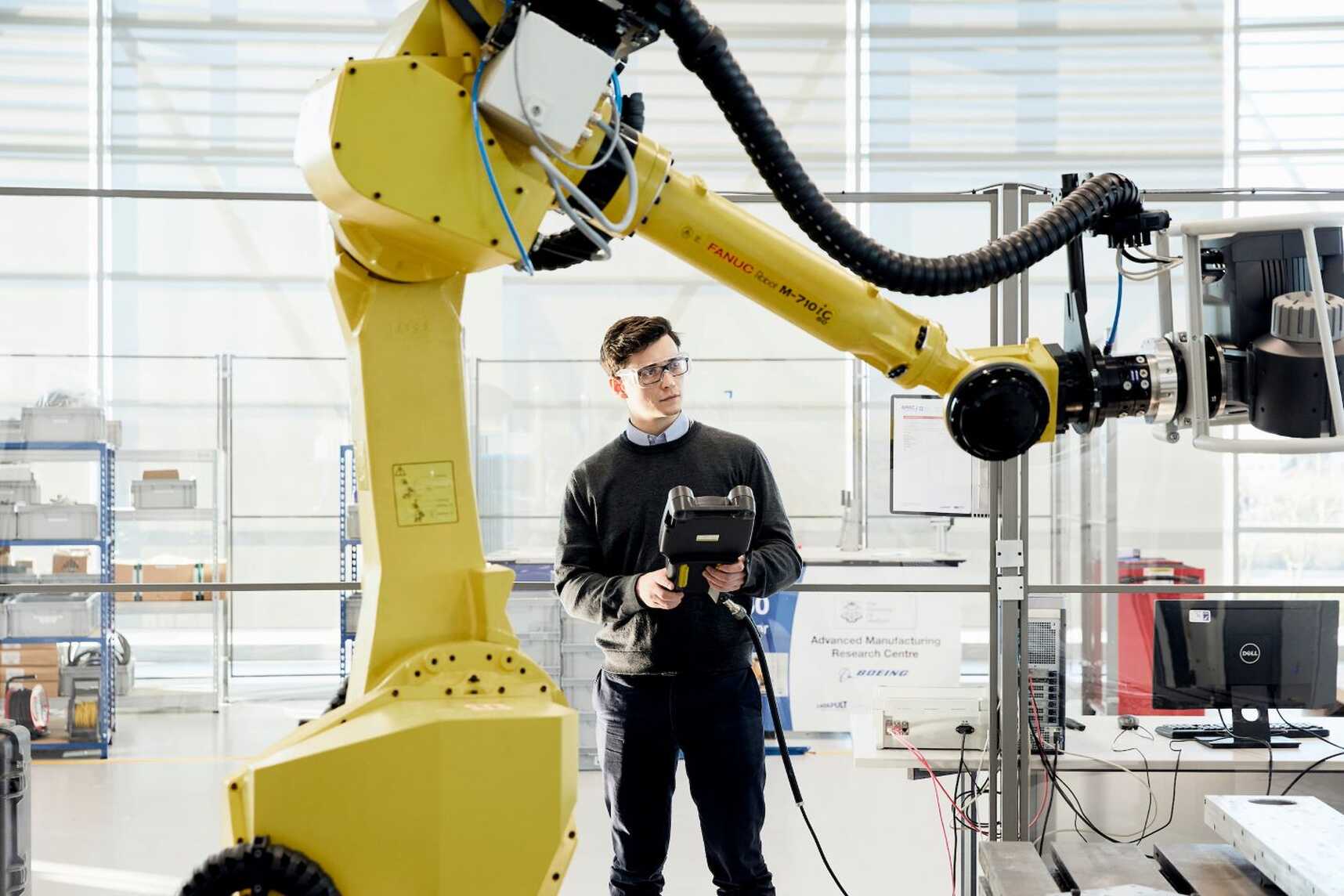Business
Understanding Cryptocurrency Basics Before Buying Crypto

The digital revolution has propelled cryptocurrency to the forefront of finance, captivating investors and enthusiasts alike. It represents a potential paradigm shift, offering a decentralized financial future with greater user control.
However, navigating this exciting yet volatile market requires a solid foundation in its core principles. And after reading this guide, you’ll be well equipped to make informed decisions.
We’ll explore the fundamentals, including the revolutionary blockchain technology that underpins it. We’ll delve into the benefits and risks associated with cryptocurrency, equipping you to weigh the potential rewards against the inherent challenges.
But knowledge is just the beginning. This guide equips you for action. We’ll explore the different types of cryptocurrencies and guide you in selecting projects aligned with your investment goals.
More importantly, you’ll learn how to create your wallet to secure your holdings and, most critically, generate a strong wallet keyphrase – your master password to your crypto. Remember, safeguarding this keyphrase is paramount, as losing it means losing your investment.
By the end of this guide, you’ll be well-equipped to enter the world of cryptocurrency with confidence, understanding its potential and possessing the tools for responsible participation.
What is Cryptocurrency?
Cryptocurrency breaks away from traditional currencies by existing solely in the digital realm. It bypasses central banks and instead relies on cryptography and decentralized networks (blockchains) for security and exchange.
Key Concepts:
- Blockchain: A distributed ledger technology that acts as a secure public record of all transactions. Imagine a giant, shared spreadsheet constantly being updated and verified by a network of computers. This eliminates the need for a central authority to oversee transactions.
- Cryptography: Acts as the secret ingredient in cryptocurrencies. These sophisticated encryption techniques safeguard transactions and meticulously control the creation of new units, making counterfeiting and double-spending virtually impossible.
- Mining: The process of adding new transactions to the blockchain and releasing new cryptocurrency units (for certain currencies). Miners wield powerful computers to solve intricate mathematical puzzles. The victor in this digital competition is rewarded with newly minted coins, adding to the cryptocurrency circulating supply.
- Wallets: Digital storage solutions for your cryptocurrency holdings. There are different types of wallets, each with its own security features and functionalities.
Benefits of Cryptocurrency: A Deeper Dive
Cryptocurrencies offer unique advantages that are revolutionizing how we think about money and financial transactions. Here’s a closer look at the key benefits:
- Decentralization and User Control: Unlike traditional currencies controlled by central banks, cryptocurrencies operate on decentralized networks. This means no single entity can manipulate the money supply or dictate transaction fees. Users have greater control over their finances and can send and/or receive funds directly without relying on intermediaries like banks.
- Enhanced Security: Blockchain technology forms the backbone of most cryptocurrencies, providing a robust security framework. Transactions are encrypted, chronologically recorded on a public ledger, and verified by nodes (network of computers). This distributed ledger system makes it extremely difficult to tamper with transaction records, reducing the risk of fraud and counterfeiting.
- Transparency and Trust: All transactions on a blockchain are publicly viewable, offering a level of openness absent in traditional financial systems. This allows participants to verify the legitimacy of transactions and fosters trust between participants who may not know each other. Additionally, the immutability of the blockchain ensures that transaction records cannot be altered, further bolstering trust in the system.
- Faster and Potentially Lower-Cost Transactions: Cryptocurrency transactions can be significantly faster than traditional bank transfers. This is especially true for international payments. Cryptocurrencies can reduce transaction fees by eliminating the need for intermediaries and streamlining the process. However, it’s important to note that transaction fees on some blockchain networks can fluctuate depending on network congestion.
- Borderless Transactions: Cryptocurrencies transcend geographical borders. Unlike traditional currencies restricted by national boundaries, cryptocurrencies can be sent and received anywhere in the world. All it takes is an internet connection. This eliminates the need for currency exchange and associated fees, making conducting international transactions easier and cheaper.
- Potential for Programmable Money: Certain cryptocurrencies, particularly those built on the Ethereum platform, leverage smart contracts – self-executing code that can automate transactions based on predetermined conditions. This opens up a world of possibilities for programmable money, enabling applications like automated payments, escrow services, and decentralized finance (DeFi).
Risks and Challenges:
- Volatility: Cryptocurrency prices can fluctuate significantly – a major downside for those seeking stability.
- Regulation: As a relatively new technology, cryptocurrency regulations are still evolving, leading to uncertainty.
- Security Risks: Crypto wallets and exchanges can be vulnerable to hacking and cyberattacks. Users need to be vigilant about security measures.
- Environmental Impact: This refers to the energy consumption required for mining specific cryptocurrencies is a growing concern.
Different Types of Cryptocurrencies:
- Bitcoin is the first and largest crypto by market cap, known for its limited supply and decentralized nature.
- Ethereum: A platform for building decentralized applications (dApps) with its own cryptocurrency, Ether (ETH).
- Stablecoins: Cryptocurrencies pegged to a stable asset (fiat currency) like the US dollar, aiming to reduce price volatility.
- Altcoins: A broad term encompassing all cryptocurrencies other than Bitcoin. There are thousands of altcoins with diverse purposes and functionalities.
Before You Buy Crypto:
- Do Your Research: Don’t just follow the hype. Before investing, understand the project, its technology, and its potential use case.
- Define Your Investment Goals: Are you looking for a short-term trade or a long-term investment? This will guide your choice of cryptocurrency.
- Only Invest What You Can Afford: Cryptocurrencies are risky investments. Only invest what you’re comfortable potentially losing.
- Choose a Reputable Exchange: Select a reputable and secure cryptocurrency platform to buy and sell your crypto.
- Learn About Wallets: Understand the different types of wallets (storages) and choose one that suits your needs and security preferences.
- Stay Informed: Keep yourself updated on cryptocurrency news, regulations, and technological advancements.
Additional Considerations:
- Taxes: Depending on location, cryptocurrency transactions may be subject to capital gains taxes.
- Security: Always practice safe online practices and store your cryptocurrency securely.
- Scams: Be cautious of scams and Initial Coin Offerings (ICOs) that typically promise high returns with little risk.
Conclusion
Cryptocurrency offers a glimpse into the (potential) future of finance, but it’s a complex and evolving landscape. By educating yourself, understanding the risks and benefits, and approaching it cautiously, you can make informed decisions about buying cryptocurrency and potentially participate in this exciting revolution.
Remember: This guide is a starting point; there’s always more to learn. Explore reliable resources like educational websites, articles, and white papers (a document outlining a cryptocurrency project) to deepen your understanding. Invest responsibly and never stop learning!
Business
Cardiff airport investment under fire as Qatar link stalls despite £400m public backing

Ministers admit no meetings with airline that once received Welsh Government marketing support
THE FUTURE of Cardiff Airport’s long-haul ambitions has been thrown back into the spotlight after Welsh ministers admitted they have not personally met Qatar Airways executives — despite the airline once operating the airport’s flagship international route and benefiting from a publicly funded marketing partnership.
The admission has prompted fresh questions over whether taxpayers are getting value for the almost £400 million of public money that has been invested in the airport since it was bought by the Welsh Government in 2013.
South Wales Central Conservative MS Andrew RT Davies said the lack of direct engagement was “unacceptable”, arguing that ministers had failed to prioritise restoring one of Wales’ most important global connections.
In written questions to Economy Minister Rebecca Evans and Transport Minister Ken Skates, he asked how many times they had met Qatar Airways since August 2024.
Both confirmed they had not held any meetings.
Ms Evans said commercial negotiations are led by the airport’s executive team and added she would “very much welcome” the route’s return when the time is right.
Mr Skates said responsibility for the airport sits outside his portfolio and declined to comment further while discussions are ongoing.

Flagship route
Qatar Airways launched daily flights between Cardiff and Doha in 2018 to considerable fanfare.
At the time, ministers described the service as “transformational”, linking Wales directly to one of the world’s biggest aviation hubs and providing one-stop access to more than 150 destinations across Asia, Australia, Africa and the Middle East.
Business groups said the route would make Wales more attractive to inward investors and exporters, while tourism chiefs hoped it would bring higher-spending international visitors.
To promote the link, the Welsh Government entered into a two-year marketing partnership with the airline, understood to be worth around £1 million, aimed at raising Wales’ profile overseas and encouraging travel through Cardiff.
The agreement funded joint advertising and promotional campaigns in international markets.
However, the route operated for less than two years before being suspended at the start of the Covid-19 pandemic in 2020.
While Qatar Airways has since restored flights to other UK airports including Heathrow, Manchester and Birmingham, Cardiff remains the only former UK destination where services have not resumed.

Value for money questions
The situation has reignited debate over whether the public investment delivered lasting benefits.
Critics say the combination of direct airport funding and marketing support should have secured a more sustainable presence from a global carrier.
They question whether the advertising partnership represented value for money if the route ultimately disappeared and has yet to return.

For some observers, the absence of Qatar has become a yardstick for judging the success of government ownership.
After more than a decade and hundreds of millions of pounds in loans and support, they argue, Wales should be seeing stronger international connectivity rather than retreat.
Supporters counter that the pandemic severely disrupted aviation worldwide and that rebuilding routes takes time, particularly for smaller regional airports.
They also note that commercial airline negotiations are typically handled by airport management rather than ministers.

Passenger recovery
Cardiff Airport was purchased by the Welsh Government for £52m to prevent its closure and safeguard jobs.
Since then it has required repeated financial support packages to maintain operations and invest in infrastructure.
Passenger numbers remain below pre-pandemic levels, and the airport continues to compete with Bristol, which offers a far wider range of routes and attracts many Welsh travellers across the border.
Industry analysts say long-haul services such as Doha are especially important because they connect regions directly to global markets without relying on London hubs.
Without them, airports risk being seen as secondary or feeder operations.
Political pressure
Mr Davies said the government needed to show greater urgency.
“Senedd ministers have ploughed almost £400 million into Cardiff Airport since they bought it – yet they haven’t even bothered to meet with a major airline to re-establish a crucial international link,” he said.

“When that level of public money is involved, people expect leadership.
“Getting flights back should be a priority.”
The Welsh Government maintains it remains supportive of restoring the route and says talks with Qatar Airways are continuing through airport executives.
But for many travellers and businesses, the key question remains simple: after years of investment and promises, when will Wales once again have a direct long-haul link to the world?
Until Qatar — or another global carrier — returns, critics say, that question will continue to hang over Cardiff Airport’s future.
Business
Croeso awards return to celebrate Pembrokeshire’s tourism stars

Colin Jackson to host major industry night as entries open for 2026 event
THE CELEBRATION of Pembrokeshire’s tourism and hospitality sector is officially underway as the Visit Pembrokeshire Croeso Awards return for 2026 after a two-year break.

The prestigious awards, designed to recognise businesses that go above and beyond to deliver exceptional visitor experiences, are back with what organisers describe as “fresh energy and renewed ambition”.
This year’s ceremony will be hosted by Welsh sporting legend Colin Jackson CBE, the Olympic silver medallist and former world champion hurdler, who will act as compère for the evening.
The awards will take place on Thursday (Oct 29), bringing together leading hotels, attractions, restaurants and tourism operators from across the county for a night of celebration and recognition.

Seventeen categories are open for entry, including Best Hotel, Best Place to Eat, Accessible & Inclusive Tourism Award and Rising Star, highlighting both established operators and emerging talent within the industry.
Organisers say the event is not only about rewarding excellence, but also about developing the next generation of hospitality professionals.
At the heart of this year’s ceremony is a partnership between Pembrokeshire College and the Celtic Collection. Students will gain hands-on experience in staging a live, large-scale event, working alongside front-of-house teams and industry specialists to plan and deliver the evening.
The collaboration aims to give young people practical skills while supporting the long-term future of the county’s tourism sector.
Emma Thornton, Chief Executive of Visit Pembrokeshire, said: “We are very excited to be launching our 2026 Croeso Awards building on our 2024 event through working in partnership with Pembrokeshire College and the Celtic Collection.
“We’ve taken the deliberate step to launch three months earlier than in previous years. By doing so we hope this will encourage more entries, making it much easier for businesses and organisations to submit entries well ahead of the busy spring and summer season.
“If you haven’t entered the Croeso Awards before, please make this the year that you do.”
Applications are now open via the Croeso Awards pages on the Visit Pembrokeshire website and close on Monday (March 31). The shortlist will be announced on July 1.
Support sessions to help businesses complete applications will be held every Wednesday throughout February at the Bridge Innovation Centre in Pembroke Dock.
Tickets and a limited number of sponsorship opportunities are also available.
Photo caption:
Colin Jackson CBE will host the 2026 Croeso Awards when they return this October (Pic supplied).
Business
Welsh business confidence falls sharply in January

BUSINESS confidence in Wales fell by twenty points in January, according to the latest Business Barometer from Lloyds Bank, amid weakening optimism about both trading conditions and the wider economy.
The headline confidence figure for Wales dropped to 32%, down from 52% in December 2025. Firms’ confidence in their own trading prospects fell even more steeply, down thirty points to 38%, while optimism about the wider economy declined by eight points to 27%.
Despite the downturn in sentiment, Welsh businesses reported stronger hiring intentions. A net balance of 44% of firms said they expect to increase staff numbers over the next twelve months, up twenty-four points on the previous month.
Looking ahead, businesses in Wales identified their main priorities for growth over the next six months as developing new products or services (43%), investing in staff training and skills (40%), and introducing new technology (33%).
The Business Barometer surveys around 1,200 businesses across the UK each month and has been running since 2002, providing early indicators of regional and national economic trends.
UK outlook mixed
Across the UK as a whole, business confidence slipped by three points in January to 44%. While firms’ confidence in their own trading prospects increased by seven points to 59%, optimism about the wider economy fell sharply, down fourteen points to 28%.
London recorded the highest confidence level of any UK nation or region at 68%, followed by Northern Ireland at 66% and the West Midlands at 65%.
Sector picture
Retail confidence edged up slightly in January, rising by two points to 49%. Confidence in the service sector increased by one point to 42%, marking the first rise since the summer. Construction confidence, however, fell back after a particularly strong improvement in December.
Nathan Morgan, area director for Wales at Lloyds, said the figures reflected ongoing economic pressures but highlighted some positive signals.
“Business confidence has reduced this month, reflecting wider economic headwinds,” he said. “However, hiring intentions are up sharply, with Welsh businesses planning to invest in people at scale, showing a real commitment to growth despite the challenges.”
Hann-Ju Ho, senior economist at Lloyds Commercial Banking, said firms were entering the year with confidence in their own trading prospects, even as concerns about the broader economy persisted.
“The first rise in confidence in the services sector in seven months is encouraging, given the sector’s central role in supporting UK economic activity,” she said.
-

 Health4 days ago
Health4 days agoConsultation reveals lack of public trust in health board
-

 News6 days ago
News6 days agoCaldey still unsafe, survivors warn — despite Abbey’s reform claims
-

 Community5 days ago
Community5 days agoPembrokeshire students speak at national Holocaust Memorial Day event
-

 News6 days ago
News6 days agoKurtz raises Gumfreston flooding in the Senedd as petition deadline nears
-

 Community7 days ago
Community7 days agoStorm Chandra: Morning impacts across Pembrokeshire
-

 Entertainment6 days ago
Entertainment6 days agoRapunzel brings festive magic to Torch Theatre
-

 Crime6 days ago
Crime6 days agoMan denies murdering brother as jury hears of ‘ferocious attack’ at Morriston flat
-

 Education5 days ago
Education5 days agoAttendance concerns at Milford School reflect wider issue raised at the Senedd

















